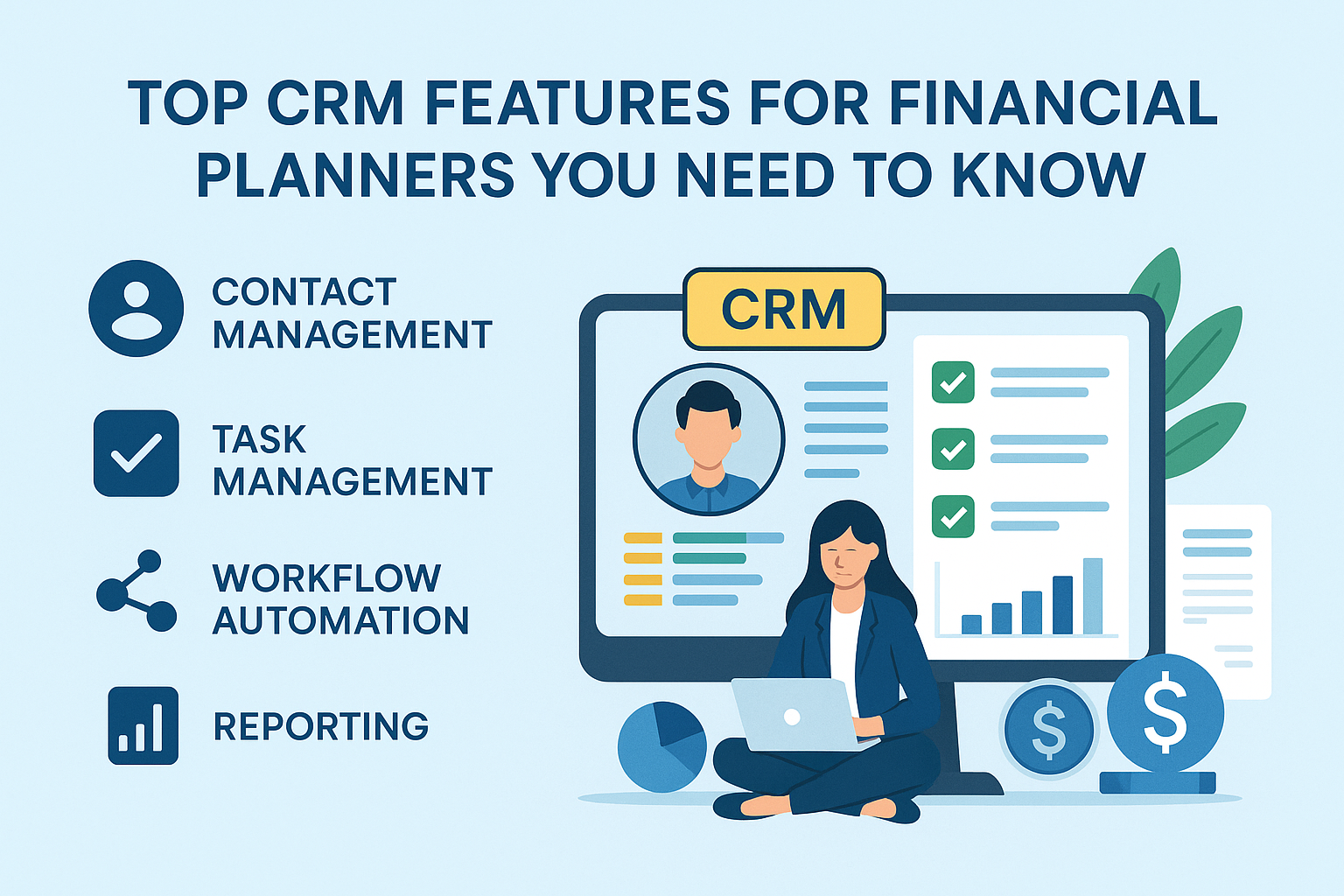Discover how a specialized CRM can transform your advisory business, improve client engagement, and support long-term success.
Why Financial Planners Need a Specialized CRM
Financial planners handle complex client portfolios and sensitive data. A CRM tailored for financial services helps organize interactions, automate tasks, and provide insights to focus on what matters building strong, trusted client relationships.
1. Centralized Client Data Management
A top-tier CRM consolidates contact details, financial histories, investment preferences, and communication records in one platform. Look for customizable fields for data like risk tolerance or retirement goals.
Why It Matters: Saves time, reduces errors, and enables personalized, trust-building advice.
2. Workflow Automation for Efficiency
Automate repetitive tasks like reminders, follow-ups, or report generation. For example, set triggers to send personalized emails after meetings or alerts for portfolio reviews.
Why It Matters: Frees up time, reduces errors, and ensures consistent client communication.
3. Compliance and Data Security
Ensure the CRM includes encryption, secure storage, and tools for GDPR or HIPAA compliance. Features like permission-based access and audit trails help control who sees what.
Why It Matters: Builds client trust and protects your firm from compliance risks.
4. Integration with Financial Tools
A CRM that integrates with tools like QuickBooks, Xero, or portfolio management platforms streamlines data analysis and reporting. Email integrations (Outlook, Gmail) enhance communication tracking.
Why It Matters: Eliminates redundant data entry and builds a cohesive, efficient tech ecosystem.
5. Advanced Analytics and Reporting
Use dashboards to visualize metrics such as AUM, retention rates, or engagement trends. Identify opportunities and track performance with customized reports.
Why It Matters: Empowers you with insights to make informed, data-driven decisions.
6. Task and Pipeline Management
Visual pipelines help you manage prospects through stages like qualification or onboarding. Task reminders and shared calendars keep your workflow organized and timely.
Why It Matters: Keeps you organized, improves client conversion, and ensures timely follow-ups.
7. Mobile Accessibility
CRMs with full-feature mobile apps let you access and update client data, tasks, or notes while on the move essential for advisors who meet clients offsite or attend industry events.
Why It Matters: Keeps you responsive and productive wherever you are.
8. Personalized Client Communication Tools
Features like email templates, automated follow-ups, and social media tracking enhance engagement. Personalization helps you connect with clients on a deeper level.
Why It Matters: Drives loyalty and referrals through consistent, personalized communication.
How to Choose the Right CRM for Your Financial Planning Firm
- Assess Your Needs: Identify features critical to your workflow.
- Evaluate Usability: Choose a CRM with a user-friendly interface.
- Consider Scalability: Pick a system that grows with your firm.
- Test Free Trials: Explore features firsthand before committing.
- Check Support Options: Ensure access to responsive, knowledgeable support.
Conclusion
A CRM built for financial planners enhances operations, compliance, and client satisfaction. By choosing a solution with features like automation, security, and analytics, you’ll elevate your service, retain clients, and grow your practice efficiently.
Ready to elevate your firm? Explore top CRM solutions and unlock the power of seamless client relationship management today.

